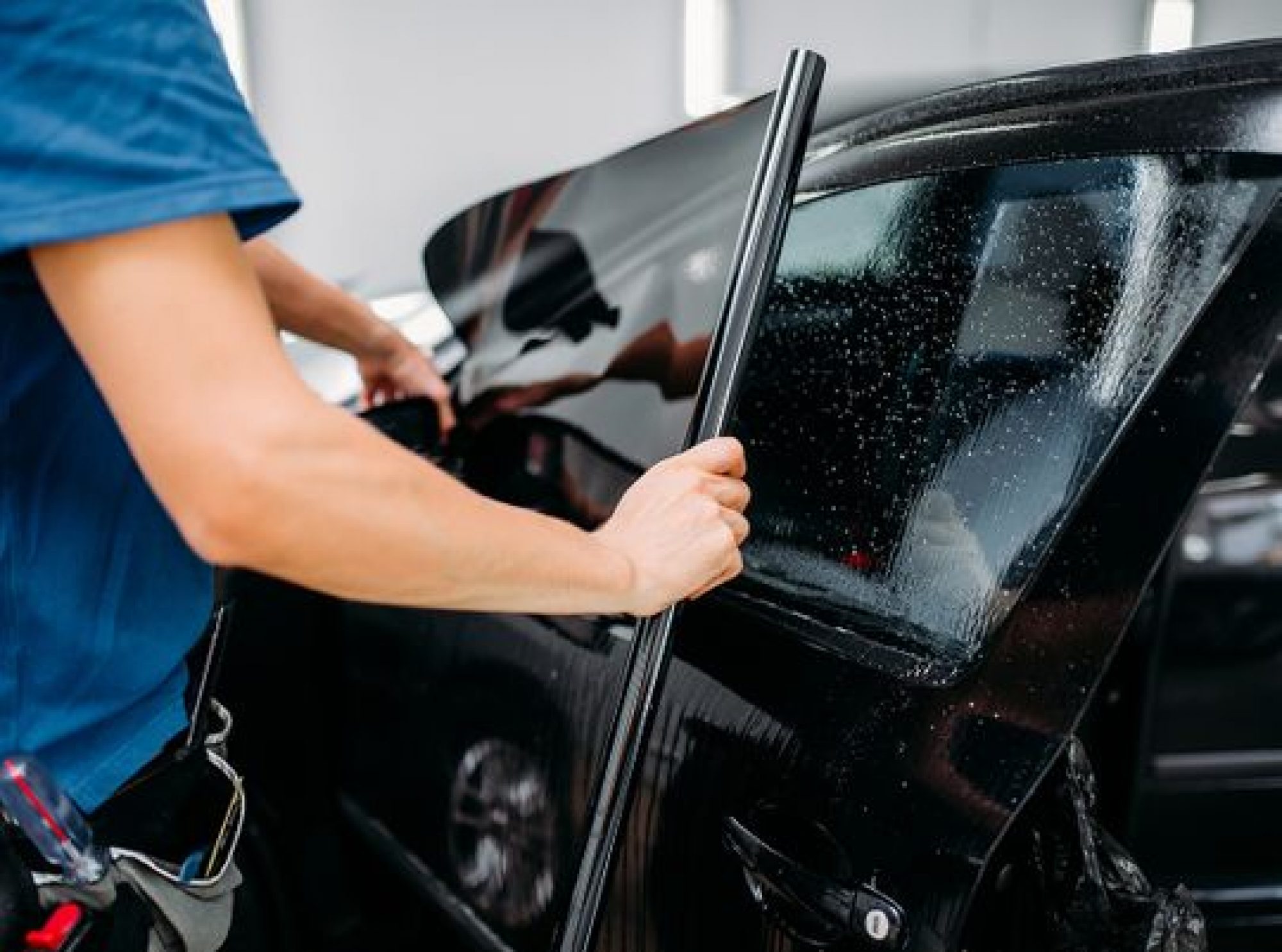Window Tinting for Homes: Improve Energy Efficiency and Privacy with Style
Window Tinting for Homes: Improve Energy Efficiency and Privacy with Style
Blog Article
Window Tinting Rules: What You Required to Know Before Tinting Your Cars And Truck
Recognizing window tinting legislations is crucial for any automobile owner considering tinting their automobile. Rules vary substantially from state to state, developing particular limits for Visible Light Transmission (VLT) percentages, especially for front-side home windows and windshields. Failure to adhere to these laws can cause fines, the necessity to eliminate the color, and issues with insurance. As you consider improving your lorry's look and functionality, it is crucial to understand not only the lawful effects however also the functional factors to consider that include selecting the appropriate tint. What factors should you prioritize in your decision-making procedure?
Value of Understanding Tint Regulations
Understanding home window tinting regulations is vital for vehicle proprietors to make sure compliance with state laws. These laws determine the allowable degrees of color darkness and reflectivity, which can substantially vary from one territory to another. Stopping working to stick to these laws can result in penalties, necessary elimination of the color, and possible issues during vehicle examinations.
Additionally, comprehending these laws assists car proprietors make educated decisions regarding their tinting options. Various kinds of window movies supply numerous benefits, such as UV defense, warmth denial, and glow decrease. Without understanding of the lawful limits, automobile owners risk selecting products that may ultimately lead to lawful issues.
In addition, understanding of tinting regulations promotes a much safer driving environment. window tinting. Excessively dark tints can harm exposure, raising the risk of accidents, specifically in the evening or in negative weather condition problems. Law enforcement firms also make use of these regulations to make sure roadway security, making conformity not simply an individual obligation yet a legal commitment
State-Specific Tint Rules
Each state in the united state has actually developed its very own certain laws pertaining to window tinting, showing a varied selection of needs and requirements. These policies can vary substantially, affecting just how car proprietors come close to installation and compliance. For example, some states enable darker colors on rear windows while imposing rigorous limits on front-side windows.
In addition, policies typically specify allowable tint products and colors. Certain states forbid reflective tints completely, while others might enable them to a restricted degree. Some jurisdictions mandate that cars with colored windows display a sticker label showing compliance with state laws, supplying a clear recognition for regulation enforcement.
Enforcement of these regulations likewise varies; some states are much more positive, carrying out arbitrary checks, while others rely upon complaints or visible offenses to start enforcement. Car owners should be aware that failure to follow state-specific tint policies can lead to penalties, mandatory removal of illegal colors, or both.

Lawful Color Percentages
Figuring out the lawful color percents is essential for car owners seeking to abide by state guidelines. Each state has certain regulations governing just how much light must go through the windows of a vehicle, which is revealed as a portion referred to as Visible Light Transmission (VLT) This percentage differs dramatically throughout states and can depend on the type of window-- front side, back side, and windscreen.
For circumstances, some states allow just 20% VLT on front side home windows, while others might permit approximately 50%. Windscreen tinting is commonly more limited, with lots of jurisdictions enabling just a narrow band of tint on top of the windscreen. On the other hand, rear home windows commonly have a lot more forgiving laws, with some states allowing darker colors.
It is vital for car owners to familiarize themselves with their regional regulations to stay clear of possible legal concerns. This includes understanding exactly how VLT is measured, as it can vary based upon the kind of home window movie utilized. Staying informed about these regulations ensures compliance and promotes secure driving conditions for both the car owner and others when traveling.
Consequences of Non-Compliance
Failing to abide by window tinting legislations can bring about considerable repercussions for vehicle owners. The most immediate effect is the potential for website traffic stops and citations from police. Officers educated to recognize unlawful color levels may provide penalties, which can differ by jurisdiction yet frequently range from modest to substantial quantities. Repetitive infractions might result in increased charges, including greater fines or extra factors on a chauffeur's certificate.

Insurer might likewise enforce fines for non-compliance, as illegal alterations can be checked out as a violation of plan terms. This might influence insurance coverage prices or lead to issues in claims if a case happens.
Eventually, the repercussions of non-compliance expand beyond instant monetary charges; they can impact a motorist's insurance rates, lawful standing, and overall vehicle value, stressing the significance of sticking to local home window tinting policies.
Tips for Choosing Tinting Options
Comprehending the ramifications of non-compliance highlights click for more the significance of making notified options when selecting window tinting choices. To start with, familiarize yourself with your state's specific legislations concerning color darkness and reflectivity. Each state has special policies that determine the permissible limitations, so ensure click this site you stay within these guidelines to avoid penalties.
Secondly, think about the kind of tint material. Choices consist of colored, metalized, and ceramic tints, each offering differing degrees of heat denial, UV security, and toughness. For instance, ceramic tints give superior warmth resistance without interfering with electronic gadgets, making them a popular selection.
In addition, assess your key purpose for tinting. If you look for enhanced personal privacy, opt for darker colors; however, remember that this might affect presence at night. Alternatively, if glare reduction and UV protection are your primary concerns, lighter tints might be adequate.
Last but not least, speak with an expert installer that is well-informed regarding local laws and can recommend high-quality products matched to your demands (window tinting). Taking these elements right into account will guarantee you make a well-informed choice, inevitably boosting both your car's looks and performance
Final Thought
In verdict, knowledge with window tinting legislations is necessary before using color to a lorry. Each state implements details laws concerning noticeable light transmission portions, specifically for front-side windows and windscreens. Non-compliance can lead to substantial fines, including fines and necessary removal of non-conforming tint. By recognizing legal requirements and picking suitable tint materials, automobile proprietors can accomplish aesthetic improvement while continuing to be certified with appropriate regulations. Adherence to these guidelines makes sure both safety and security and satisfaction.
Comprehending window tinting regulations why not try here is vital for any type of car owner thinking about tinting their automobile.Understanding home window tinting laws is essential for vehicle owners to make sure compliance with state policies. Some states permit darker colors on back windows while enforcing strict restrictions on front-side windows.
In contrast, back home windows commonly have more forgiving regulations, with some states permitting darker tints. (window tinting)
In final thought, experience with home window tinting legislations is vital prior to applying tint to a car.
Report this page